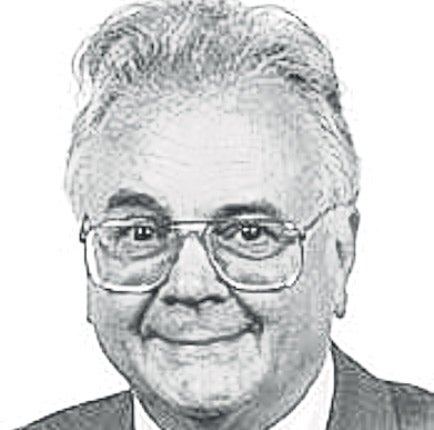Ken Coates: Tireless writer and activist for numerous left-wing causes

Your support helps us to tell the story
From reproductive rights to climate change to Big Tech, The Independent is on the ground when the story is developing. Whether it's investigating the financials of Elon Musk's pro-Trump PAC or producing our latest documentary, 'The A Word', which shines a light on the American women fighting for reproductive rights, we know how important it is to parse out the facts from the messaging.
At such a critical moment in US history, we need reporters on the ground. Your donation allows us to keep sending journalists to speak to both sides of the story.
The Independent is trusted by Americans across the entire political spectrum. And unlike many other quality news outlets, we choose not to lock Americans out of our reporting and analysis with paywalls. We believe quality journalism should be available to everyone, paid for by those who can afford it.
Your support makes all the difference.Ken Coates was an inveterate campaigner for left-wing causes, internationalism and peace for more than 60 years. A prolific author of books, pamphlets, and articles in many journals, he was still dictating his ideas and arguments 48 hours before his death.
He was born in September 1930 in Leek, Staffordshire – his father Eric was a surveyor – but his family moved to Sussex while he was a child. In 1945 he was the victor in a mock election at Worthing Grammar School, standing as the Communist candidate, and he was active in local politics from then on. After taking his Higher School Certificate, he volunteered to work in the coalmines instead of being conscripted, and he took employment at Teversal colliery and later Bilsthorpe colliery in Nottinghamshire.
In 1956, he won a state scholarship to Nottingham University with an essay on Sean O'Casey, and obtained a first-class degree in sociology in 1959. He then became a tutor in adult education, eventually becoming a professor. This led to 30 years as a teacher, researcher and writer on poverty, industrial relations and working-class history which influenced the outlook of many of his students.
From his mid-teens onwards he was deeply involved in politics, but he resigned his membership of the Communist Party in the mid-1950s in revulsion at Soviet policies. As a student he was active in the National Association of Labour Student Organisations and became its national secretary.
He met leading Trotskyists like Ernest Mandel and the daughter of the Chinese Trotskyist Li Peng, but he threw himself into the Labour Party and became president of Nottingham Labour Party. However, his support for the Campaign for Nuclear Disarmament, his bitter criticism of the 1964-70 Labour Government's refusal to condemn US policy in Vietnam and his opposition to an incomes policy, led to his expulsion.
Undeterred, he continued to campaign for the same objectives and as a director of the Bertrand Russell Peace Foundation from 1965 he was the driving force behind an extensive publishing programme in support of CND, against the war in Vietnam, on behalf of political prisoners, and exposing war crimes. In 1979, he began to work with EP Thompson on European nuclear disarmament and the organisation of European Nuclear Disarmament conventions.
Coates was one of the key figures in setting up the Institute for Workers' Control, which attracted conferences of up to 1,000 delegates, and he played a leading part in launching the left-wing journal The Spokesman, which is still flourishing. Contacts with trade unionists like Jack Jones and Hugh Scanlon helped him gain re-admittance to the Labour Party and in 1989 he was elected MEP for Nottingham.
In this capacity, he served for five years as chairman of the Human Rights sub-committee and organised many progressive initiatives. He later became secretary of a special committee on employment and secured the adoption of an important report. He also organised the Movement for Full Employment and tried, unsuccessfully, to promote the idea of meetings between the European Parliament and the Supreme Soviet.
He was, totally opposed to so-called New Labour and played a key role in the campaign against the abolition of Clause IV of the party's constitution in favour of public ownership, in which I was also deeply involved. His book Clause IV: Common Ownership and the Labour Party (1995) was widely circulated at this time. In 1998 he broke with the British Labour group and joined the United Left. In the 1999 European Elections he stood as an independent socialist but was not re-elected.
Thereafter he continued to work for the same causes. As throughout his adult life, he was active on local issues in the Nottinghamshire and Derbyshire area, and backed the miners in all their struggles. He campaigned against military intervention in Afghanistan, Iraq and elsewhere and, in addition to editing The Spokesman produced a steady stream of books and articles.
Among his publications, many of them written with Tony Topham, are a two-volume history of the Transport and General Workers' Union (1991), Poverty: the Forgotten Englishmen (1970, with Richard Silburn), Workers' Control (1968 and 2005) and The Dangerous Decade (1984). He also promoted the re-publication of a number of texts significant in the history of socialism.
Stan Newens
Kenneth Sidney Coates, political activist: born Leek, Staffordshire 16 September 1930; married (three daughters, three sons, one child deceased); died Matlock, Derbyshire 27 June 2010.
Join our commenting forum
Join thought-provoking conversations, follow other Independent readers and see their replies
Comments